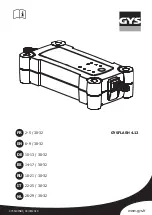
2.
Child age 12 or under:
A child age 12 or under must ride in the
front seat because:
•
my vehicle has no rear seat;
•
although children age 12 and under ride in the rear seat whenever
possible, children age 12 and under have no option but to sometimes
ride in the front seat because rear seat space is insufficient; or
•
the child has a medical condition that, according to the child’s
physician, makes it necessary for the child to ride in the front seat so
that the driver can monitor the child’s condition.
3.
Medical condition:
A passenger has a medical condition that,
according to his or her physician:
•
poses a special risk for the passenger if the airbag deploys; and
•
makes the potential harm from the passenger airbag deployment
greater than the potential harm from turning OFF the airbag and
experiencing a crash without the protection offered by the airbag
WARNING:
This vehicle has special energy management safety
belts for the driver and right front passenger. These particular
belts are specifically designed to work with airbags to help reduce the
risk of injury in a collision. The energy management safety belt is
designed to give or release additional belt webbing in some accidents
to reduce concentration of force on an occupant’s chest and reduce the
risk of certain bone fractures and injuries to underlying organs. In a
crash, if the airbag is turned OFF, this energy management safety belt
might permit the person wearing the belt to move forward enough to
incur a serious or fatal injury. The more severe the crash, and the
heavier the occupant, the greater the risk is. Be sure the airbag is
turned ON for any person who does not qualify under the NHTSA
deactivation criteria.
Seating and Safety Restraints
193
2010 F-250/350/450/550
(f23)
Owners Guide, 1st Printing
USA
(fus)
















































